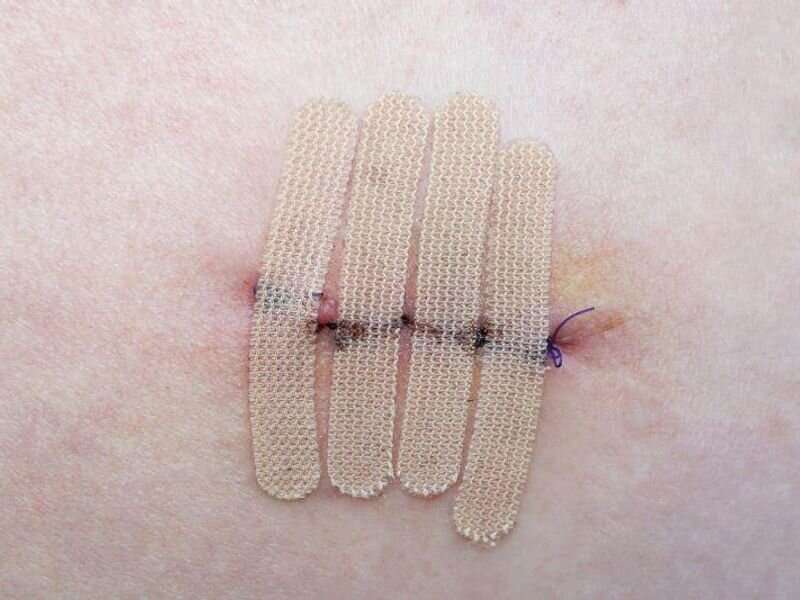For patients undergoing skin cancer surgery, microdosed incisional clindamycin reduces the rate of surgical site infections (SSIs), according to a study published online May 24 in JAMA Surgery.
Maple Goh, M.B.Ch.B., from the University of Auckland in New Zealand, and colleagues conducted a randomized controlled trial to examine whether microdosed incisional antibiotics reduce the rate of SSIs among adult patients undergoing any form of skin cancer surgery.
Patients received an incision site injection of buffered local anesthetic alone (control) or buffered local anesthetic with microdosed flucloxacillin (500 μg/mL) or microdosed clindamycin (500 μg/mL). A total of 681 patients returned for postoperative assessments (721 presentations and 1,133 total lesions).
The researchers found that the proportion of lesions exhibiting a postoperative wound infection score of 5 or greater was 5.7, 5.3, and 2.1 percent in the control, flucloxacillin, and clindamycin arms, respectively. After adjustment for baseline differences among the arms, the results were similar. Significantly fewer lesions in the clindamycin and flucloxacillin arms required postoperative systemic antibiotics compared with lesions in the control arm (2.1 and 4.0 percent, respectively, versus 8.0 percent).
"These results establish evidence-based guidelines for antibiotic prophylaxis in one of the most common surgical interventions performed worldwide, where they have been previously absent," the authors write.
More information: Maple Goh et al, Effect of Microdoses of Incisional Antibiotics on the Rate of Surgical Site Infections in Skin Cancer Surgery, JAMA Surgery (2023). DOI: 10.1001/jamasurg.2023.1201
Amanda R. Sergesketter et al, Local Delivery of Antibiotics—Applications in Cutaneous Surgery and Beyond, JAMA Surgery (2023). DOI: 10.1001/jamasurg.2023.1215
Journal information: JAMA Surgery
Copyright © 2023 HealthDay. All rights reserved.
























